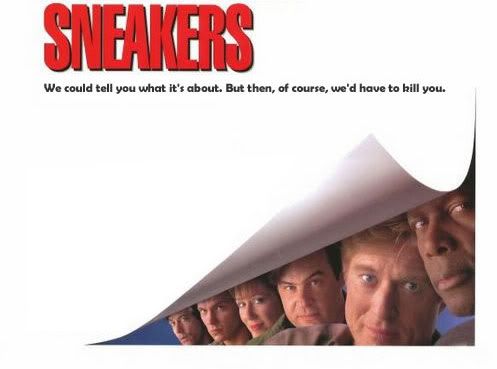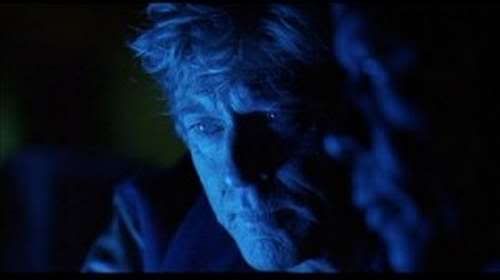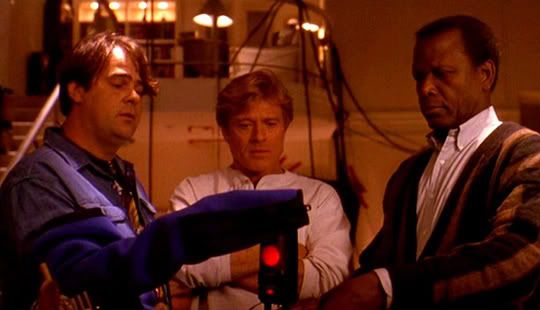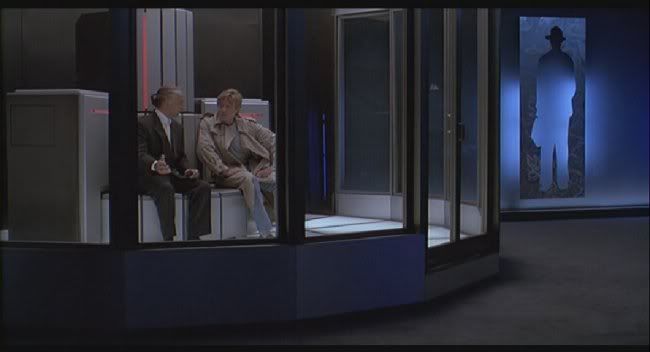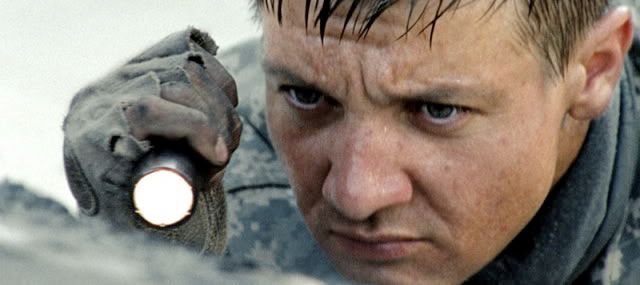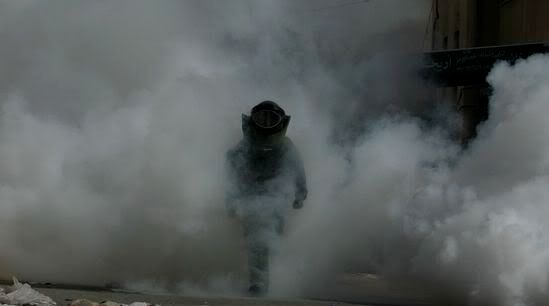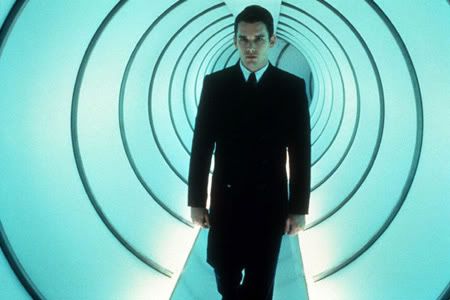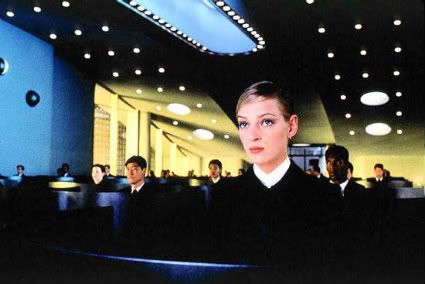
[audio:http://www.blueinkalchemy.com/uploads/adaptation.mp3]
In case you didn’t know, writing is difficult. It’s grueling on an intellectual level, isolating on a social level and ultimately unrewarding in terms of both criticism and payment. Despite the banality of their works, Stephenie Meyer and Dan Brown are rarities, in that they’ve managed to make fortunes for themselves (and, in Ms. Meyer’s case, the Church of Jesus Christ of the Latter-Day Saints) in the world of printed fiction. Even more rare are gifted writers who tell good and deep stories, and then there are films like Adaptation.

I wasn’t sure what this movie was really about, when I put it on my Netflix queue. I’d heard it was quirky and funny, and I guess I was expecting the kind of dry, pretentious comedy that tries to be the polar opposite of populist slapstick. I was looking for something hard to watch because it was face-palmingly gut-wrenchingly bad. I should have known better. Adaptation. is not hard to watch for those reasons, but it can be a bit difficult for me because I relate a great deal to the protagonist, Charlie Kaufman.
Charlie, played by Nicholas Cage at his neurotic best, is a struggling screenwriter fresh from his work on Being John Malkovich. He’s hired to adapt the novel The Orchid Thief, a story that he believes is merely about flowers. This excites him since he’s not interested in cliché over-marketed screenplays (I can’t blame him). However, he begins to have serious problems, losing sleep and struggling with a way to even open his screenplay. He studies both the subject of the novel, John Laroche, and its author, Susan Orlean. The more we learn about these two, the more the story between them is revealed and yet, the more Charlie struggles with his work. His mooching twin brother, Donald, takes it upon himself to write a screenplay of his own, going right for the clichés that Charlie loathes. As the film goes on, we go deeper and deeper into all of these characters, and the film seems to become more and more self-aware, unfolding like a flower before our eyes.
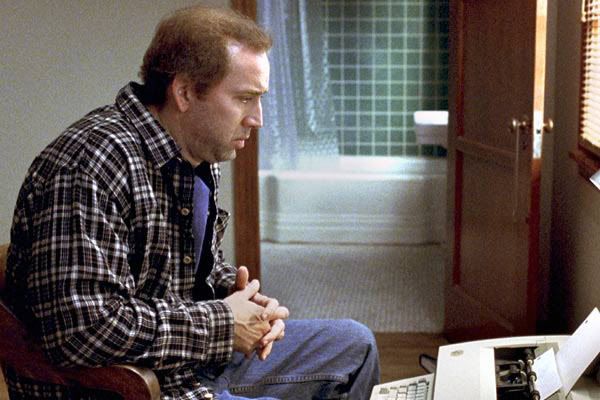
This is a feeling I know very, very well.
I know there are people out there who don’t like Nicholas Cage. They’re not fond of his taste for the scenery he often chews on, and some find his popping up in action or adventure movies like National Treasure or Ghost Rider to be a gross misappropriation of talent. While I don’t think this is necessarily true, Adaptation. is hands-down one of the best Nicholas Cage performances I’ve yet to see. It’s like my favorite performance of Ben Stiller’s, way back in Zero Effect, in that it’s delightfully understated and leaves the scenery mostly free of bite marks. In playing both Charlie and Donald, Nick gives us a pair of unique, nuanced characters that are totally believable as twin brothers. The delivery of their lines, the way they move and interact, even tiny things like the shapes of their disparate smiles speak to a rare talent that often goes overlooked in those aforementioned blockbusters. It was so compelling that the Academy Awards nominated both Charlie and Donald for Best Adapted Screenplay that year, making Donald the first and only fully fictitious person ever nominated for an award.
That same year, Chris Cooper won the Best Supporting Actor for this film, while Meryl Streep was nominated for Best Supporting Actress. They so completely inhabit the celluloid personifications of real-life ‘characters’ John Laroche and Susan Orlean that at times the film almost feels like a documentary, and this is without the use of any major contrivances. I could go on about the cast, like Brian Cox playing story seminar luminary Robert McKee at McKee’s suggestion, but I think this starting to become another one of those reviews where I’ll need to really struggle to find something critical to say about the film.

Meryl Streep is stunning and Chris Cooper has no front teeth.
And here it is: it might be too intellectual. Most of the first two acts of this movie are in the head-space of very smart people, specialists in their field. Charlie Kaufman, for all of his neuroses, is a very gifted screenwriter with a unique point of view. Orlean is a journalist and novelist that should inspire lady writers everywhere, and even Laroche, played by Chris Cooper as something of a backwoods eccentric, is actually well-read and published in his own right in the world of horticulture. The mitigating factor that makes all of this brainpower interesting is that these people are every bit as passionate as they are intellectual. Kaufman is haunted by his previous success and his desire to continue to rail against the common conventions of the movie industry. Orlean is a deeply lonely woman, trying like hell to uncover some sort of meaning to her life. Laroche is driven by a series of personal tragedies that lurk just behind his toothless grin and devil-may-care attitude. Which leads me from Adaptation‘s only obvious flaw to its greatest strength.
To say that Adaptation. is about writing, or flowers, or the fallacy of writer’s block would be true in a sense, but would also be doing the film a disservice. What Adaptation. draws our attention to is people. The crux of this movie involves the depiction of its characters as something much deeper than the standard shallow stock ones that usually wander across movie sets. It seems to be telling us that people are a lot more multi-faceted and capable of more growth than that for which we typically give them credit. The ways in which a given human individual can both rise and fall are so different and endless as to boggle the mind, and yet it’s something taken for granted. Among other things, Adaptation. struggles to shake us free of that complacency, and in a sarcastic deconstructionist world delivers an optimism and appreciation for individuality – amusingly, in a deconstructionist and occasionally sarcastic way.
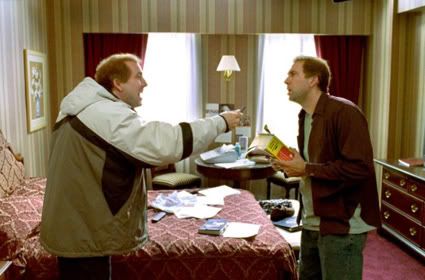
Happy together.
The last thing I’ll touch on here is that this movie is by no means afraid to take the piss out of itself. A few of the jabs here and there are aimed at the film industry in general, but Adaptation. has a level of meta-awareness that’s incredibly rare. When Charlie asks how his twin brother plans to convey the multiple-personality serial killer, essentially putting two people who are the same person into the same room, Donald shrugs and remarks, “Trick photography.” To put it another way, Nicholas Cage’s character tells Nicholas Cage’s other character that he’s going to achieve an effect to have two characters played by the same actor talk to each other with trick photography. It’s meta humor, and it’s not for everybody, but I got a big charge out of it, to say nothing of the film’s third act – which, without giving anything away, I believe all takes place as a conversation between Charlie and Donald that we never see or hear.
Anyway, those’re my thoughts on Adaptation. and I highly recommend it for the reasons I’ve cited. I’ll say that I’m sure it’s not the kind of film everybody is going to like. In fact, I can see people downright hating it. But as someone aspiring to make their living writing, someone who’s come to appreciate good meta humor and the kind of person who enjoys deep character explorations and interesting dialog just as much as car chases or gunfights, this film is an absolute standout. I can’t say the same for this review, however. I’ve once again gushed about a film that, while some people might not have seen, others will probably have seen the subject line of the review and rolled their eyes, as if to say, “Oh, here we go again, he’s going to love it and not tear it a new asshole.”
Tell you what, conjectural nay-sayer: You start paying me to review shitty movies, and I’ll be more than happy to tell you how shitty they are. Sound like a fair deal? Do you think MovieBob really wanted to sit through New Moon? How much do you think Yahtzee enjoys reviewing JRPGs? They’re professionals. I’m just an amateur center-of-attention pseudo-intellectual wanna-be pissing away hours of my life because this is something I’ve discovered people tend to think I’m halfway decent at doing. It’s the same reason I code websites for my dayjob. But hey, if someone out there on the Internet with hiring power actually stumbles across these reviews and thinks I’ll marginally increase their Google page rank, maybe I can get underpaid for doing this job, too.
Josh Loomis can’t always make it to the local megaplex, and thus must turn to alternative forms of cinematic entertainment. There might not be overpriced soda pop & over-buttered popcorn, and it’s unclear if this week’s film came in the mail or was delivered via the dark & mysterious tubes of the Internet. Only one thing is certain… IT CAME FROM NETFLIX.




